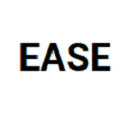Among the research topics in multi-agent learning, mixed-motive cooperation is one of the most prominent challenges, primarily due to the mismatch between individual and collective goals. The cutting-edge research is focused on incorporating domain knowledge into rewards and introducing additional mechanisms to incentivize cooperation. However, these approaches often face shortcomings such as the effort on manual design and the absence of theoretical groundings. To close this gap, we model the mixed-motive game as a differentiable game for the ease of illuminating the learning dynamics towards cooperation. More detailed, we introduce a novel optimization method named \textbf{\textit{A}}ltruistic \textbf{\textit{G}}radient \textbf{\textit{A}}djustment (\textbf{\textit{AgA}}) that employs gradient adjustments to progressively align individual and collective objectives. Furthermore, we theoretically prove that AgA effectively attracts gradients to stable fixed points of the collective objective while considering individual interests, and we validate these claims with empirical evidence. We evaluate the effectiveness of our algorithm AgA through benchmark environments for testing mixed-motive collaboration with small-scale agents such as the two-player public good game and the sequential social dilemma games, Cleanup and Harvest, as well as our self-developed large-scale environment in the game StarCraft II.
翻译:暂无翻译




